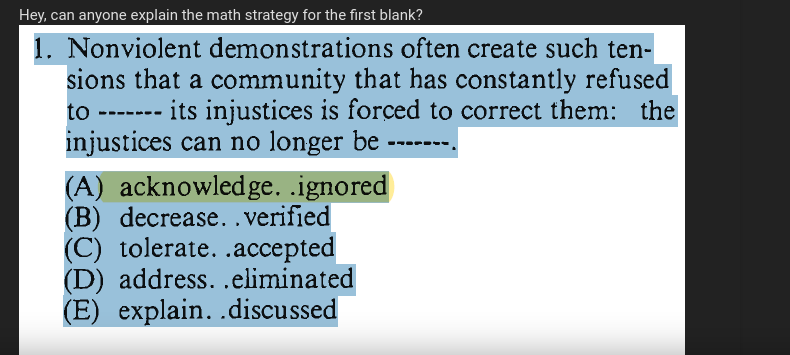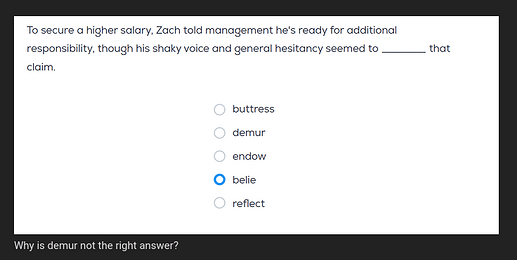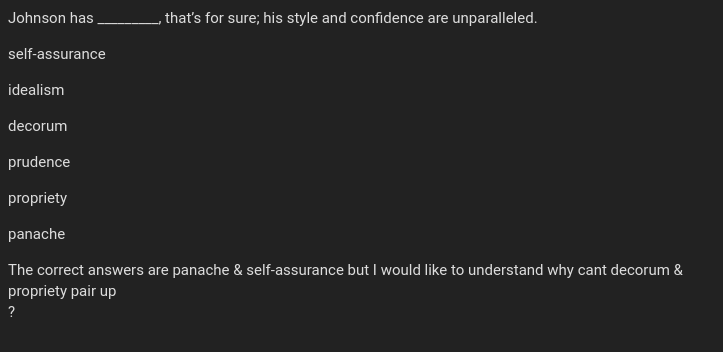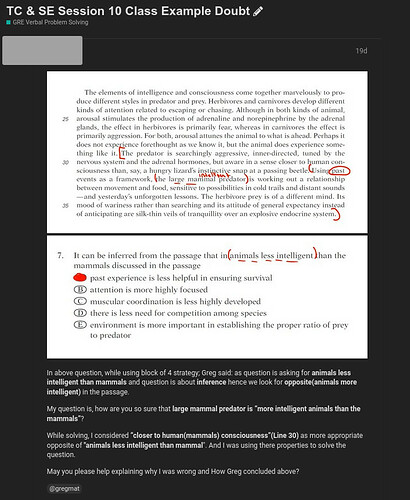Welcome to the forums!
Since GregMat (who is a very chill person) doesn’t have any specific formatting rules when it comes to asking questions on the forums, I feel like there should at least be a reference text of some sort that can help people ask better questions and make the process more enjoyable for those who try to answer them.
The Golden Rule: Imagine You’re Trying To Answer the Question
Before you post your question about GRE preparation, practice questions, or strategies, try to put yourself in the shoes of someone who will be answering it. Make sure your query is concise, clear, and has all the essential information.
Ethical Guidelines for Posting Questions
It’s crucial to maintain the integrity of the GRE community by adhering to ethical guidelines. Specifically, do not post questions obtained from official GRE exams, or pirated sites, among others. Failure to comply with these guidelines, even after being warned, may result in a ban from the forums. Same goes for asking pirated copies of the official material be it related to GRE or TOEFL (recordings also counts).
Specify the correct GRE Section Tag
When you ask a question, make sure you specify the correct tag on whether it’s about the Quantitative, Verbal, Writing or is it more related such as General, or GregMat Issues sections etc . This helps the right people find and answer your question.
For instance, if your question pertains to probability questions in the Quantitative section, make sure you use the GRE Quant Problem Solving tag. If you are seeking advice on whether to go for a Master’s or a Ph.D. based on your GRE score, either post on General or better still use something like Reddit’s r/gradadmissions subreddit.
Include the Question Source
Always include the question the source. If it’s from an official ETS book, state that. If it’s from a third-party source, mention that as well. This allows others to look up the question for a fuller context.
Provide Context
When asking for help on a specific problem, don’t just paste the question. Explain what you find confusing about it. Are you struggling with the question’s phrasing? Do you not understand a term? Did you try an approach that didn’t work?
Your Attempts
Include what you’ve already tried, or what you think the answer might be and why. This makes it easier for people to pinpoint where you might be going wrong and provides a starting point for their explanations.
Timing
If timing was an issue in your attempt, mention that as well. Some strategies are more applicable to questions where you’re struggling with the content, while others are better for when you’re struggling with timing.
Format Appropriately
Make sure your question is easy to read. If you’re posting math equations from the Quant section, try to format them so they’re easy to understand or make use of the screenshot tool in your operating system. Images from a camera are discouraged.
The easier your question is to read, the more likely it is you’ll get a helpful response.
Additional Constraints
Are you looking for an explanation that avoids certain methods or concepts, like combinatorics or probability? If so, make that clear in your question.
Reserve Specific Tags for Relevant Issues
GregMat forums allow you to tag users to get their attention, but this should be used judiciously. For example, tagging @GregMat or any other mod may seem like a quick way to get your question answered by an expert, but it’s not always appropriate. Reserve such specific tagging for issues directly related to that individual’s area of responsibility or expertise within the forum.
For general GRE questions or doubts, allow the community to pitch in first. The right people will naturally find your question through the proper tags and titles. This allows the tagged individuals, like @GregMat, to focus on issues most relevant to their role and expertise, making the forum a more effective resource for everyone.
Stay Engaged and Complete the Feedback Loop
After you’ve posted your question, it’s essential to remain actively engaged with the community. This continuous involvement ensures that you get the most out of the answers and clarifications you receive while also enhancing the overall quality of the forum for everyone.
Watch for Clarification Requests and Updates
Keep an eye on your question for comments asking for more details or clarification. Respond to these as quickly as possible to help the community provide a more accurate answer.
Openly Discuss Received Answers
If an answer doesn’t exactly meet your needs, politely and constructively explain why it isn’t suitable. Remember to thank the contributor for their time and effort. Your feedback can help guide better answers both for you and future visitors with similar queries.
Mark Solutions and Provide Feedback
When you receive a satisfactory answer, mark it as the ‘Solution’ and consider leaving some feedback. This helps future visitors who may have similar questions and also shows appreciation to the person who provided the answer.
Consider Revising Your Original Question
Based on the community interaction, you may find that your initial question could be clearer or more detailed. Feel free to edit it to help future users and to attract more accurate answers.
By staying engaged and completing the feedback loop, you make the community a richer, more effective resource for everyone involved.
Don’t Use Mod Mail for General Questions
Mod mail or direct messaging to moderators should be reserved for issues concerning the forum’s management, policy, or other specialized concerns. It should not be used to ask general GRE-related questions that can be answered by the community.
What If No One Answers My Question?
We understand the frustration that comes with asking a question and not getting a response. While following these guidelines can significantly improve your chances of receiving a helpful answer, there’s no guarantee that your question will be addressed immediately or to your full satisfaction. Forum members, including moderators have limited time and may not be able to answer every question but we at GregMat try our level best to answer as many as we can.
Alternative Options:
- Revisit and Revise: If your question hasn’t received attention, consider revising it to make it clearer or adding more information that could help others understand your query better.
- Have a Coffee with Greg or Vince: Both Greg and Vince conduct weekly sessions where you can ask your GRE-related questions directly. Keep an eye out for announcements regarding these sessions and try your luck there.
- Search the Forum: Sometimes your question might have already been answered in another thread. Use the search function to look for similar questions and their answers.
- Private Tutoring: you can book a private session with Greg (or one of the other staff members) at Tutoring - GregMat
References
Feel free to provide any feedback you have on this post in the comment section below.
Examples of Badly-Asked Questions:
Question:
Question:
Question:
Question:
In all of these questions, the people are not providing any context on what they did. For example, imagine you ask a question and I reply with ‘The answer is D’ without any explanation, and then ask you instead on why do you think D is the correct answer .
If you’re not putting effort into asking your question, why do you expect people to put effort into answering them?
Example of a Well-Written Question:
The user provided screenshot (not your camera 90 degree flipped screenshot), so the question is easily understandable, also they made the title to be where the question was taken from which helps other people to refer to the source if they like additional context before answering it. In the body, they have gone into what specific strategy Greg used and then provide their understanding of the same along with their doubt. While the above post looks like a lot of work, it more or less comes down how this question was framed and formatted above.




